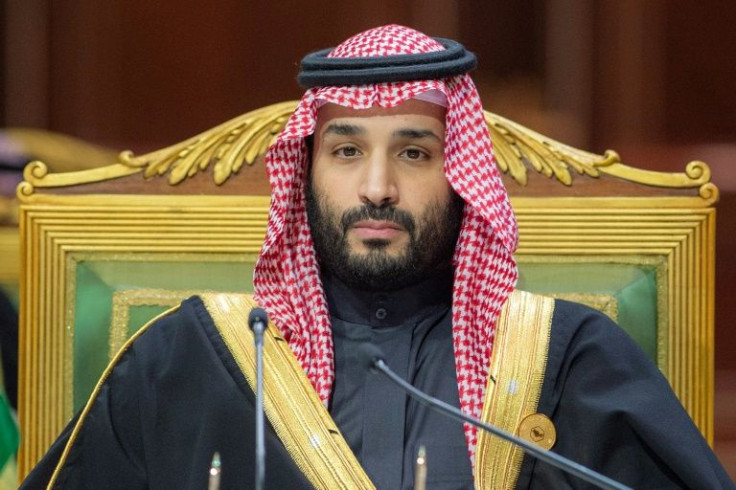MBS Proves Unstoppable Because Of Arms, Oil And Islam

He shops for western weapons with or without reason, gives jobs to thousands of expatriate workers, hosts the annual Hajj pilgrimage and when it comes to the global oil prices, he can help them steady at will. All of which explains why international criticism of Saudi Arabia's crown prince, Mohammed bin Salman Al Saud, popularly known as MBS, is muted at most.
Its current ruler King Salman is 86 years old, and not in good health. With MBS set to take over, the world powers do not want to alienate a powerful future monarch who is awash with petrodollars.
The 37-year-old MBS received a major shot in the arm on Sep. 27 with his new role as the kingdom's prime minister, a position held by his father, King Salman.
The tall, dark, and handsome Saudi prince has been a source of inspiration for his supporters. He is the first to champion reforms in a deeply conservative Gulf desert kingdom. He has boldly taken on corruption and confronted religious extremism while making all efforts to modernize the economy of Saudi Arabia, the largest oil producer in the world.
On MBS's orders, women are now allowed to drive and international sporting and music events, once considered unIslamic, are held in Saudi Arabia.
Well-known opinion-makers like Thomas Friedman once endorsed him and fell for the prince's charm.
"I, for one, am rooting for him to succeed in his reform efforts," Friedman wrote in his oft-quoted column in November 2017.
In the same year, MBS won the reader poll for Time's person of the year with a spectacular 24 percent vote share.
In April 2016, MBS introduced Vision 2030, which seeks to make the kingdom less reliant on oil and place the GCC nation at the heart of the Arab and Islamic world.
Of course, there are enough enemies for the talented Mohammed Bin Salman. Three months into his new position as defense minister in 2015, he launched a war in neighboring Yemen. The war, which has turned into a quagmire for Saudi Arabia and its allies like the UAE, earned him a lot of foes.
Two years later, quoting U.S. officials international media reported that MBS rounded up a number of his wealthiest rivals in the famous Ritz-Carlton hotel in the Saudi capital Riyadh and made them undergo torture that resulted in one death and 17 others getting treatment at a hospital.
The reports alleged that he extorted billions of dollars from the rich prisoners and his supporters hailed it as an anti-corruption campaign. But MBS, in fact, was consolidating his position in the royal palace through brute force.
"He is a psycho," a relative of the detainee said of MBS then.
Before the Ritz-Carlton crackdown, Saudi journalist Jamal Khashoggi left the country for the U.S. As a Washington Post columnist, he attacked the policies of MBS in particular. Khashoggi alleged that MBS was hoodwinking the West with a new radicalism.
MBS is reported to have hatched a plan to eliminate Khashoggi when the journalist walked into the Saudi mission in Turkey to clear the papers to marry his Turkish fiancée. A state-sponsored death squad killed him and dismembered his body.
After Khashoggi's murder in October 2018, the U.S. under the Trump administration imposed sanctions on 17 Saudi nationals. Though a U.N. report implicated MBS, no charges were framed against him.
Later, the Biden administration released an intelligence report that concluded that MBS approved the killing of Khashoggi and brought 76 unnamed persons under new sanctions. But the Biden administration spared MBS himself just because of arms, oil and Islam.
Take oil, arms and Islam, the equation between the U.S. and Saudi Arabia becomes untenable. Because of the wealth, MBS has at his disposal, the U.S. looks the other way when it comes to MBS' obvious disqualifications for a strategic alliance.
And then there is the Shia Iran, while Saudi Arabia is predominantly Sunni which prefers conservative, pro-Western regimes in place of Iran that favors governments at least skeptical of the West's nations if not outright hostile.
Two of them are vying to influence countries regardless of their religious and political leanings. For the West, MBS stands as a bulwark against Iran's aggressive expansionism.
The Obama administration challenged this Saudi position with the Iran nuclear deal. But the subsequent Trump moved in the opposite direction. However, the Biden administration tried to distance itself from the war in Yemen. Biden also raised the human rights record under MBS and the assassination of Khashoggi. But Biden preserved the overall relationship with MBS entirely for pragmatic reasons.
The ongoing conflict in Eastern Europe between Ukraine and Russia, the second largest oil producer, has forced the western powers to further accommodate MBS, the future custodian of Islam's holiest sites, who is riding high on the steady transfer of power in the kingdom.
























